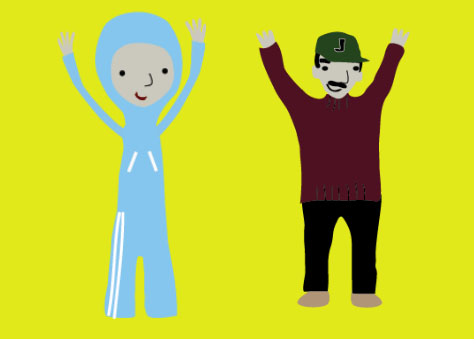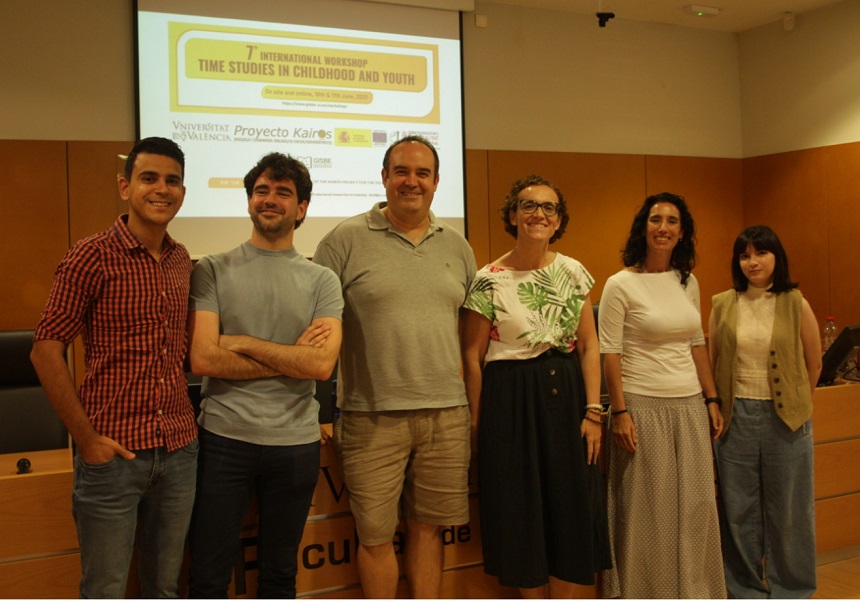The University launches a game app to fight the social stigma of the obsessive-compulsive disorder
- Press Office
- February 7th, 2022

The Universitat de València has just activated an application, downloadable on mobile devices, with a game that aims to fight the social stigma suffered by people with obsessive-compulsive disorder (OCD). The game called esTOCma (by the acronym in Spanish (TOC)), is available for Android and iOS devices by searching the word ‘estocma’.
The Research and Treatment Group on Obsessions and Compulsions (I’TOC) of the Universitat de València (www.itoc.blogs.uv.es) has been researching for more than 20 years about the psychopathological and cognitive-behavioural treatment of obsessive-compulsive disorder. Among their lines of work is that of stigma and health promotion. It is a problem associated with a high interference in the life of the sufferer, which has increased significantly as a consequence of the COVID-19 pandemic that has worsened and aggravated the symptomatology. In this regard, we are concerned about the high delay in seeking help for OCD which is associated with high distress and poorer response to treatment.
In spite of being a disorder that causes high disability levels (according to the WHO it is one of the main causes of disability) and even with effective treatments it often takes years for the patients to seek help. Among the causes of the delay it is the poor knowledge in the general population about mental health, and about OCD in particular, which makes difficult to recognise the problem, to know where to go for help, or that effective treatment exists. Another cause is the stigma associated with mental health problems and the seeking help for mental health issues. Very often the people that suffers from mental health problems feel shame, guilt or fear and hide their difficulties. To provide the general population with knowledge about mental health will make easier for them, their family, students or friends that have a mental health problem to identify it, ask for help and not feel ashamed about it.
In the framework of a project I+D+i RTI2018-098349-B-I00 supported by MCIN/ AEI/10.13039/501100011033/ and by ERDF “A way to make Europe” developed a mobile phone application in the format of a serious game to provide information about OCD and try to encourage early help-seeking. The project is led by the full university professor Amparo Belloch and the full university professor Gemma García-Soriano from the Faculty of Psychology and Speech Therapy of the Universitat de València.
The development of the esTOCma game (for the play on words between TOC and stigma) has been led by professor Gemma García-Soriano and by a team of researchers of the Universitat de València, including the doctoral student Antonio Chavez. Also participating in the development and implementation of this part of the project are members of the I’TOC Group that are specialist in clinic psychology at the University Clinical Hospital of València, the Sagunto Hospital, and the Mental Health Unit of the Integrated Health Management of Albacete, as well as people who have been diagnosed with OCD that wanted to share their experience with the disorder and the treatment. In the implementation phase undergraduate and master’s degree students from the Universitat de València are also collaborating, as well as different associations of affected people and relatives of people with OCD, such as those in Granada, Zaragoza and Valencia.
The game is free and is aimed at both the general population and people who have OCD or think they may have OCD and their families. They can all benefit from increased knowledge and understanding about what OCD is and isn’t, how interferes, where to seek help, and what treatments have been shown to be effective. The only requirement for participation is to be over 18 years of age.
The application has a game format with 10 missions, the objective is to release 10 characters that are trapped by the stigma monster that spreads stigmatising beliefs about OCD and lives on top of a hill. As the player overcomes the missions he/she gains more knowledge about OCD that allows him/her to have more adaptive beliefs and attitudes towards OCD and defeat esTOCma. Each mission is represented by one character who represents a part of society, and the monster has them as prisoners in 10 dungeons. The player’s mission is to save each person of their own stigmatizing beliefs. Additionally, there are questionnaires to assess the usefulness of the app.
The effectiveness of the application is currently being investigated and the promotors have invited the university community to use and spread it. This will help to raise the visibility of health problems, the fight against the stigma associated with them as well as the early detection and search for help.
It is a simple and friendly game, the recommendation is to make a mission per day for 10 days, with a duration of between 2 and 8 minutes per day. Since it is in a research period, there are a series of questionnaires before and after the game to be able to value the usefulness of the game.
This study has been approved by the Human Research Ethics Committee of the Universitat de València and the data is treated in complete confidentiality.
The research group has created the blog https://estocma.blogs.uv.es/ and has pages in the social networks: Facebook (estocma), Twitter (@estocma1), and Instagram (@esctocma). In addition the game’s cinematics is available at MMedia of the Universitat de València: https://mmedia.uv.es/buildhtml/69903
The esTOCma app is now available for Android and iOS by searching the word “estocma” or in the following links:
Android: https://play.google.com/store/apps/details?id=app.estocma.com
More information:
Categories: Investigació a la UV
















